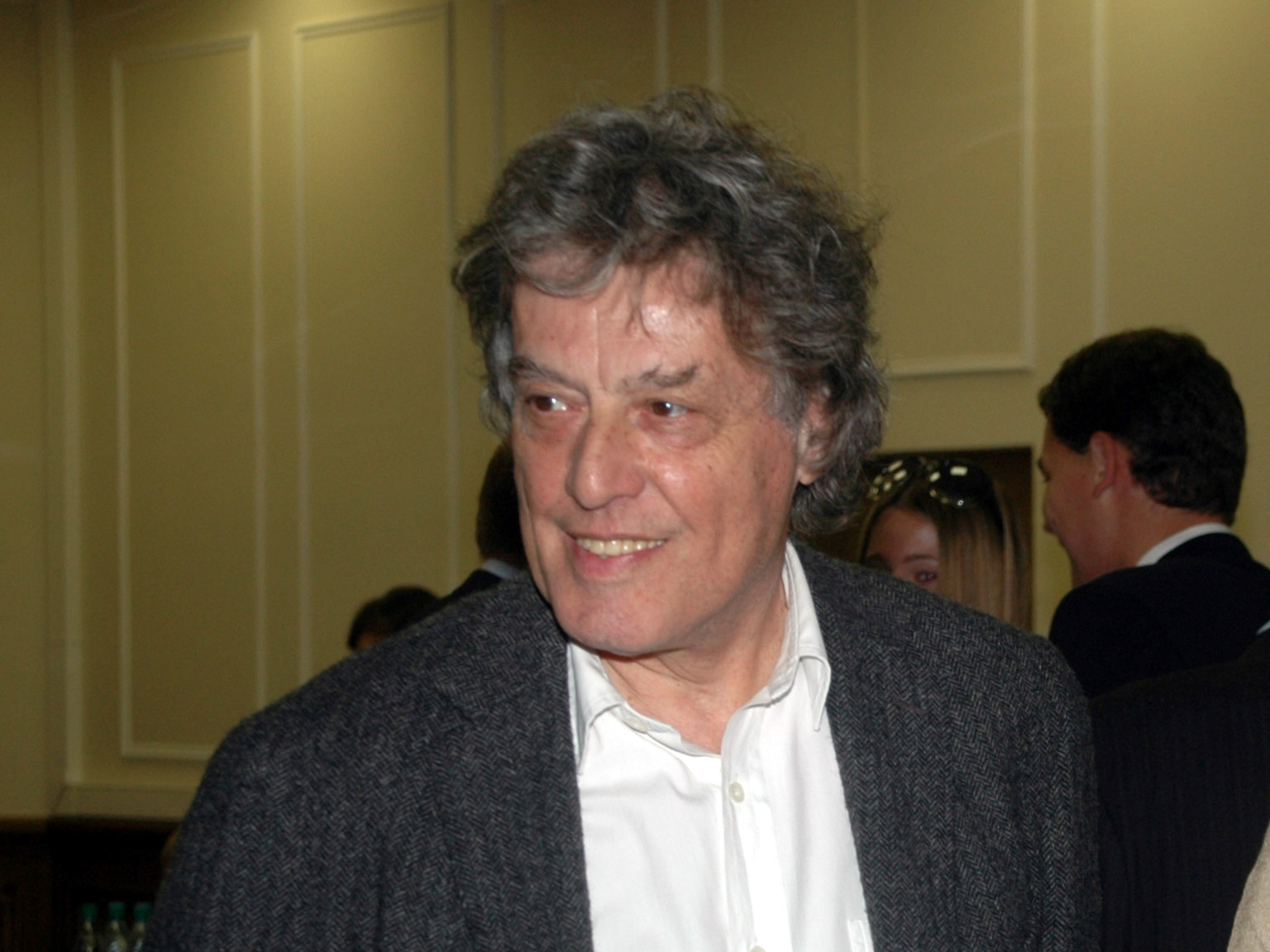Tom Stoppard Quotes
Act I
Travesties (1974)
Misattributed
Source: Darryl Hannah http://www.idolpleasures.com/daryl_hannah.shtml.
“From principles is derived probability, but truth or certainty is obtained only from facts.”
From principles is derived probability, but truth is obtained only from facts. - Jesse Olney (1798 - 1872), The National Preceptor (Goodwin, 1830), Lesson LXXXV: "Select Sentences," rule # 19 (p. 171).
Misattributed
The Coast of Utopia: Voyage (2002)
The Coast of Utopia: Salvage (2002)
“Good things, when short, are twice as good.”
Misattributed
Source: Baltasar Gracián, The Art of Wordly Wisdom (Oráculo Manual) Maxim #105 http://www.humanistictexts.org/gracian.htm.
Carr, Act I
Travesties (1974)
The Coast of Utopia: Shipwreck (2002)
“Bakunin: Act first! The ideas will follow, and if not — well, it's progress”
The Coast of Utopia: Shipwreck (2002)
“Since we cannot hope for order let us withdraw with style from the chaos.”
Source: Lord Malquist and Mr Moon (1966), Ch. I: Dramatis Personae and Other Coincidences.
“I agree with everything you say, but I would attack to the death your right to say it.”
Source: Lord Malquist and Mr Moon (1966), Ch. 2: A Couple of Deaths and Exits.
Wagner, Act I
Night and Day (1978)
Housman, Act I
The Invention of Love (1997)
Mageeba, Act II
Night and Day (1978)
Act I
Arcadia (1993)
“It is better of course to know useless things than to know nothing.”
Misattributed
Source: Seneca, Epistle 88, as seen in the following: "You may sweep all these theories in with the superfluous troops of 'liberal' studies; the one class of men give me a knowledge that will be of no use to me, the other class do away with any hope of attaining knowledge. It is better, of course, to know useless things than to know nothing. One set of philosophers offers no light by which I may direct my gaze toward the truth; the other digs out my very eyes and leaves me blind." Seneca: Epistle 88 http://www.stoics.com/seneca_epistles_book_2.html#%E2%80%98LXXXVIII1
Max, Act I, scene I
The Real Thing (1982)
Herzen
The Coast of Utopia: Salvage (2002)
Housman, Act I.
The Invention of Love (1997)
“Alexander: How the world must have been changing while I was holding it still. tnt in love.”
The Coast of Utopia: Voyage (2002)
Elle est désirée pour la salir. Non pour elle-même, mais pour la joie goûtée dans la certitude de la profaner.
Misattributed
Source: Georges Bataille, Erotism (1962) [City Lights Books, 1991, trans. Mary Dalwood, ISBN 0872861902], part I, ch. XIII, p. 144.
Max, Act I, scene I.
Often misquoted as "The days of the digital watch are numbered."
The Real Thing (1982)
Henry, Act II, scene V
The Real Thing (1982)
Interview http://books.google.com/books?id=PubwLmgAcd0C&q="It+seems+pointless+to+be+quoted+if+one+isn't+going+to+be+quotable"+"it's+better+to+be+quotable+than+honest"&pg=PA49#v=onepage with Janet Watts that appeared in The Guardian newspaper 21 March 1973.
Source: George, Act II. Jumpers (1972)
“Most men give advice by the bucket, but take it by the grain.”
Misattributed
Source: William R(ounseville) Alger, American clergyman and writer [1822-1905]; reported in Raphael Lewin, Ed., The New Era (1872), Volume 2, p. 315.
Carr, Act I
Travesties (1974)
Source: Lord Malquist and Mr Moon (1966), Ch. 2: A Couple of Deaths and Exits.
“My whole life is waiting for the questions to which I have prepared answers.”
Source: Lord Malquist and Mr Moon (1966), Ch. 2: A Couple of Deaths and Exits.
This is a reference to a quote of Rudyard Kipling, "Power without responsibility — the prerogative of the harlot throughout the ages," which became widely known after being quoted by prime minister Stanley Baldwin in a speech of 1931-03-17.
Source: Lord Malquist and Mr Moon (1966), Ch. 6: An Honourable Death
Septimus, Act I
Arcadia (1993)
The Coast of Utopia: Shipwreck (2002)
“I write plays because dialogue is the most respectable way of contradicting myself.”
"Tom Stoppard," profile by Kenneth Tynan, The New Yorker (1977-12-19).
Interviews and profiles
Source: Interview, The Guardian (London, 1988-03-18).
Interviews and profiles
Source: William Langley, "Profile: Sir Tom Stoppard," The Telegraph (2006-11-06) http://www.telegraph.co.uk/opinion/main.jhtml;jsessionid=W4GGMOS2UYBMJQFIQMFSFFWAVCBQ0IV0?xml=/opinion/2006/06/11/do1107.xml
“Responsibilities gravitate to the person who can shoulder them.”
Misattributed
Source: Elbert Hubbard, "J.B. Runs Things," Short Stories and Index: Elbert Hubbard's Selected Writings, Part 14 (1923) [Kessinger Publishing, 1998, ISBN 0766103978], p. 278.
Source: Lord Malquist and Mr Moon (1966), Ch. I: Dramatis Personae and Other Coincidences.
George, Act I
Jumpers (1972)
Carr, Act II.
Travesties (1974)
Joyce, Act I
Stoppard called this "the most important" speech in the play
Source: Travesties (1974)
